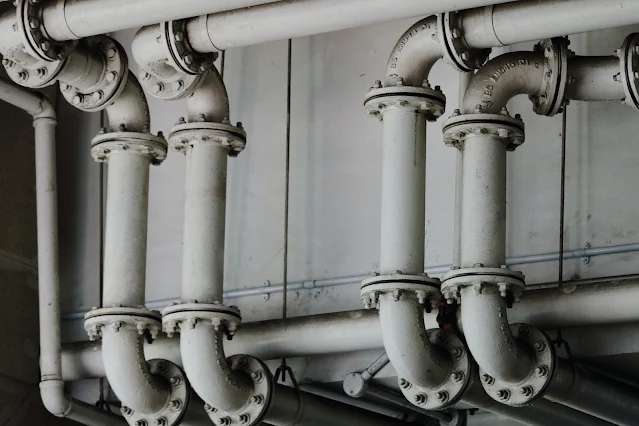There are
signs of a good or bad plumbing system that are easy to notice. If you wait to
fix a problem, you could face a storm or extreme weather that worsens your
plumbing system, making it more difficult to repair and maintain. In contrast,
the earlier you take care of a potential problem, the more likely it will be
quick and easy to fix. That’s why it is important to keep track of common
problems. That way, you can identify and get them fixed more easily. When you
discover plumbing problems at home, consider these three common reasons.
Leaky
Faucet
A leaky faucet is the most common plumbing issue that has several causes. It could be a buildup of rust that occurs due to years of wear and tear. In other cases, the gasket, washer, or O-ring is worn out and needs to be cleaned, tightened, or replaced. The effect of leakage is a non-stop dripping that adds up to hundreds of gallons of wasted water and increased water bills. Keep an eye on your faucet after usage. A little excess water can be normal, but if you notice even a slight drip several minutes after you have turned it off, there is likely a real problem. Similarly, you’ll want to watch out for showerhead and bath faucet leaks.
Leaky
Pipes
Your plumbing system consists of interconnected pipes that circulate throughout the entire home. The main problem with pipes is that they cannot be seen, so it's difficult or impossible to know when one is leaking. Also, it can be a huge leak that floods an entire room or damages the walls or ceilings. Hidden leaks remain undetected and grow larger over several weeks or months. The effects include several thousands of dollars in water damages around your home. These effects are intimidating but there are ways to tell that there’s a problem. For example, if your water bill increases, without any change in using your water, or you find unexplained mold in your home, both of these can be a sign that there is a leaky pipe somewhere. Talk with your plumber if you have any concerns.
Failed
Septic System
A septic tank supports the flow of sewage water from toilets to underground waste management systems. Your home's septic system is the primary treatment facility for waste. Septic is generally made of one or two concrete tanks. One tank is connected to a wastewater pipe, the other to a septic drain field. This is where bathroom waste goes after it travels through the pipes. The waste is supposed to be broken down and moved for disposal and further treatment in a septic drain field. Since it requires a larger zone to drain out onto, it’s unlikely that you’ll have a septic tank in a denser urban area.
However, problems may occur along the way that causes sewage backups in your toilets, flooding in your yard, or groundwater pollution. A commonly overlooked issue is the buildup of sludge that accumulates at the tank's bottom. Septic tank pumping is needed to remove this buildup before it creates any more blockage. Maintenance is required for every septic tank. So you will want to have a number on call, both for regularly scheduled maintenance and for any problems that could occur.
Some visible plumbing problems are linked to the septic tank. You may see sewage back up in the toilet, drain or sink and release a foul odor, gurgling sounds, or pools of tainted water. Some people have sinks or tubs that drain too slowly or toilets that flush weakly. Outdoors, you may notice flooding or damp spots in the yard close to the underground tank or drain field. Check for these issues and call an expert as soon as you notice any problem.
Residential
plumbing issues can happen in any home regardless of age or condition. Because
the plumbing system is largely unseen, it can be difficult to know there is a
problem or even think to check. However, there are many signs of problems that
are very easy to spot, such as a leaky faucet or a backed-up sewage system, and
are too destructive to ignore. Become more familiar with the issues that are
surrounding your plumbing and know what you can do about them. The more you
know about plumbing problems, the better you will be able to spot them, repair
them yourself, and/or call on the expert. The above tips are a great place to
start.










0 Comments